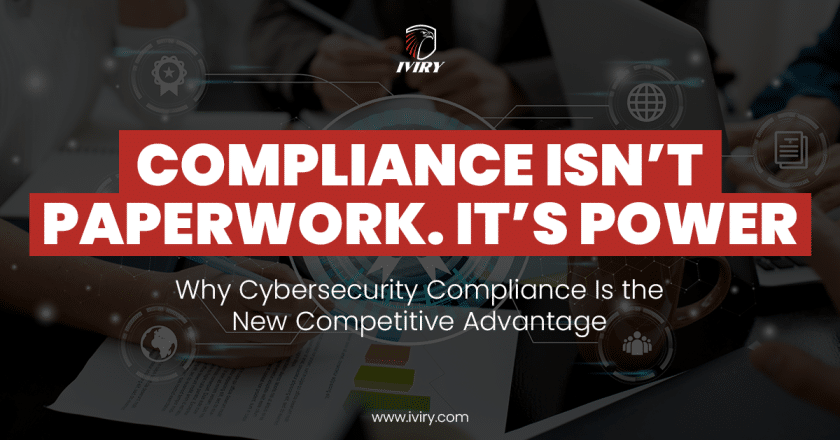In the defense sector, cybersecurity compliance is often perceived as a procedural hurdle—a box to tick before contracts can be signed. With mandates like NIST SP 800-171 and the Cybersecurity Maturity Model Certification (CMMC) becoming prerequisites for doing business with the Department of Defense, many organizations rush to “get compliant” just enough to qualify.
But here’s the reality: that mindset no longer works.
Cyber threats are growing in sophistication and scale, targeting not only large enterprises but the entire Defense Industrial Base—especially small to mid-sized contractors. In this environment, compliance is no longer a chore; it’s a strategic imperative. And when approached the right way, it can be a powerful competitive advantage.
Compliance as a Catalyst for Operational Strength
At its core, NIST SP 800-171 exists to safeguard Controlled Unclassified Information (CUI). It outlines a comprehensive set of security requirements designed to ensure that sensitive government data remains protected when handled by contractors. CMMC builds on that foundation, introducing maturity levels that measure how deeply these practices are integrated into your organization’s culture and operations.
These frameworks aren’t just about ticking off requirements—they are about changing how your organization thinks about risk, resilience, and readiness.
When implemented thoughtfully, compliance standards help you streamline operations, identify vulnerabilities before they become liabilities, and demonstrate to government clients and prime contractors that your business is secure, stable, and capable.
Why a Reactive Approach No Longer Works
Unfortunately, many organizations still treat compliance as a reactionary process. A contract is on the line, or an audit is announced, and teams scramble to pull together policies, deploy patchwork solutions, and hope nothing critical is missed.
This scramble is often expensive, exhausting, and ultimately ineffective. Reactive compliance might get you across the finish line once, but it doesn’t build the kind of long-term cyber resilience that today’s threat landscape demands.
What’s needed is a proactive, strategic approach—one that turns compliance from a one-time project into a continuous business capability.
Introducing CyberMentum: Your Roadmap to Readiness
At Iviry, we understand the weight of these challenges. That’s why we developed CyberMentum, a compliance and cybersecurity enablement platform designed specifically for defense contractors.
Rather than offering a generic solution, CyberMentum delivers a purpose-built system that supports every phase of your cybersecurity journey. It helps organizations conduct thorough self-assessments, identify and prioritize remediation tasks, and track progress toward full audit readiness.
But perhaps most importantly, it provides clarity. CyberMentum distills complex regulatory requirements into actionable insights, enabling teams to move forward with confidence—not confusion. It’s not just about passing an audit. It’s about building a cybersecurity posture that’s scalable, defensible, and aligned with mission-critical goals.
Shifting the Culture Around Compliance
The organizations that succeed in today’s environment are those that go beyond the minimum. They foster a culture of cybersecurity—where compliance is not a task assigned to IT once a year, but a shared responsibility embedded into daily operations.
This cultural shift doesn’t happen overnight. It takes leadership, vision, and the right tools to enable that transformation. But the payoff is substantial: smoother audits, greater client trust, fewer disruptions, and a stronger competitive position in the federal market.
The Strategic Advantage Hiding in Plain Sight
Here’s the irony: many contractors view compliance as a cost center—an obligation to be met as cheaply and quickly as possible. In reality, it’s one of the few business functions that can directly strengthen your resilience, enhance your reputation, and unlock new opportunities.
Defense contracts aren’t just awarded based on price. They’re awarded based on confidence—confidence that the contractor can deliver securely and reliably. Organizations that treat NIST and CMMC as strategic assets, rather than chores, are the ones earning that confidence every day.
Final Thoughts
The conversation around cybersecurity compliance is changing. It’s no longer about doing the bare minimum to stay eligible for contracts. It’s about investing in your future, safeguarding national interests, and demonstrating that your business is built for longevity.
At Iviry, we help defense contractors turn regulatory complexity into a roadmap for growth. With CyberMentum, you can stop chasing compliance and start building real cyber resilience.
If you’re ready to move beyond checkboxes and toward a smarter, more strategic approach to compliance, we’re here to help.





